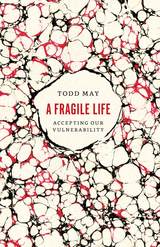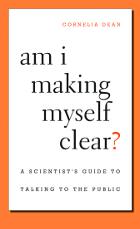
What we don’t know can hurt us—and does so every day. Climate change, health care policy, weapons of mass destruction, an aging infrastructure, stem cell research, endangered species, space exploration—all affect our lives as citizens and human beings in practical and profound ways. But unless we understand the science behind these issues, we cannot make reasonable decisions—and worse, we are susceptible to propaganda cloaked in scientific rhetoric.
To convey the facts, this book suggests, scientists must take a more active role in making their work accessible to the media, and thus to the public. In Am I Making Myself Clear? Cornelia Dean, a distinguished science editor and reporter, urges scientists to overcome their institutional reticence and let their voices be heard beyond the forum of scholarly publication. By offering useful hints for improving their interactions with policymakers, the public, and her fellow journalists, Dean aims to change the attitude of scientists who scorn the mass media as an arena where important work is too often misrepresented or hyped. Even more important, she seeks to convince them of the value and urgency of communicating to the public.
Am I Making Myself Clear? shows scientists how to speak to the public, handle the media, and describe their work to a lay audience on paper, online, and over the airwaves. It is a book that will improve the tone and content of debate over critical issues and will serve the interests of science and society.

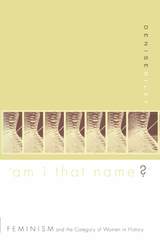
Writing about changes in the notion of womanhood, Denise Riley examines, in the manner of Foucault, shifting historical constructions of the category of “women” in relation to other categories central to concepts of personhood: the soul, the mind, the body, nature, the social.
Feminist movements, Riley argues, have had no choice but to play out this indeterminacy of women. This is made plain in their oscillations, since the 1790s, between concepts of equality and of difference. To fully recognize the ambiguity of the category of “women” is, she contends, a necessary condition for an effective feminist political philosophy.
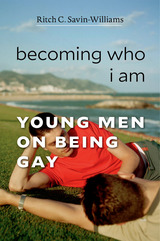
Proud, happy, grateful—gay youth describe their lives in terms that would have seemed surprising only a generation ago. Yet many adults, including parents, seem skeptical about this sea change in perceptions and attitudes. Even in an age of growing tolerance, coming out as gay is supposed to involve a crisis or struggle. This is the kind of thinking, say the young men at the heart of this book, that needs to change.
Becoming Who I Am is an astute exploration of identity and sexuality as told by today’s generation of gay young men. Through a series of in-depth interviews with teenagers and men in their early 20s, Ritch Savin-Williams reflects on how the life stories recorded here fulfill the promise of an affirmative, thriving gay identity outlined in his earlier book, The New Gay Teenager. He offers a contemporary perspective on gay lives viewed across key milestones: from dawning awareness of same-sex attraction to first sexual encounters; from the uncertainty and exhilaration of coming out to family and friends to the forming of adult romantic relationships; from insights into what it means to be gay today to musings on what the future may hold. The voices hail from diverse ethnic and socioeconomic backgrounds, but as gay men they share basic experiences in common, conveyed here with honesty, humor, and joy.
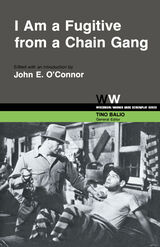
Since its release in 1932, I Am a Fugitive From a Chain Gang had earned a reputation as one of the few Hollywood products that can be associated directly with social change. Film historians attribute the reform of the southern chain gang system to the public outrage generated by this movie, which depicts a true story.
In addition to being an important social document, the film remains a gripping experience for filmgoers today because of its unusual dramatic conception, its hauntingly inconclusive ending, and Paul Muni's performance as the good boy forced to go wrong.
This book includes the complete screenplay.
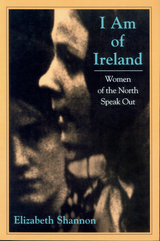

Most current talk of forgiveness and reconciliation in the aftermath of collective violence proceeds from an assumption that forgiveness is always superior to resentment and refusal to forgive. Victims who demonstrate a willingness to forgive are often celebrated as virtuous moral models, while those who refuse to forgive are frequently seen as suffering from a pathology. Resentment is viewed as a negative state, held by victims who are not "ready" or "capable" of forgiving and healing.
Resentment's Virtue offers a new, more nuanced view. Building on the writings of Holocaust survivor Jean Améry and the work of the South African Truth and Reconciliation Commission, Thomas Brudholm argues that the preservation of resentment can be the reflex of a moral protest that might be as permissible, humane or honorable as the willingness to forgive. Taking into account the experiences of victims, the findings of truth commissions, and studies of mass atrocities, Brudholm seeks to enrich the philosophical understanding of resentment.
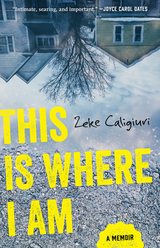
Prison is where Zeke Caligiuri is. Powderhorn Park in South Minneapolis, dubbed “Murderapolis” the year he turned eighteen, is where he comes from. It was the same neighborhood his father grew up in but had changed dramatically by the early 1990s. Yet in Zeke’s family, father and mother and grandmother kept things together while all around them the houses decayed and once-safe streets gave way to the crush of poverty and crime.
This Is Where I Am is Zeke Caligiuri’s clear-eyed account of how he got from there to here, how a boy who had every hope went from dreaming of freedom to losing it, along with nearly everything and everyone he loved. Tenderhearted in its reflections on his lost childhood, brutally candid in its description of a life of hanging and hustling, Zeke’s memoir recreates a world of tagging and goofing gone awry, of moving from smoking pot to unsuccessful attempts at dealing crack, of watching his father weep at the funeral of a seventeen-year-old boy, of going to jail: first strike. It is a place where, when asked what he's going to do with his life, a friend can only answer: “What the fuck are you talking about?”
This Is Where I Am is Zeke's own answer: he is going to tell his story, every sharp detail and sobering word, with the natural grace of a gifted writer and the hard-won wisdom of hindsight.
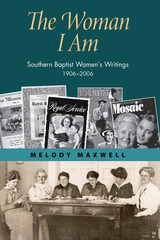
The Southern Baptist Convention (SBC) represents the largest Protestant denomination in the United States, yet Southern Baptist women’s voices have been underreported in studies of American religion and culture. In The Woman I Am, Melody Maxwell explores how female Southern Baptist writers and editors in the twentieth century depicted changing roles for women and responded to the tensions that arose as Southern Baptist women assumed leadership positions, especially in the areas of missions and denominational support.
Given access to a century of primary sources and archival documents, Maxwell writes, as did many of her subjects, in a style that deftly combines the dispassionate eye of an observer with the multidimensional grasp of a participant. She examines magazines published by Woman’s Missionary Union (WMU), an auxiliary to the SBC: Our Mission Fields (1906–1914), Royal Service (1914–1995), Contempo (1970–1995), and Missions Mosaic (1995–2006). In them, she traces how WMU writers and editors perceived, constructed, and expanded the lives of southern women.
Showing ingenuity and resiliency, these writers and editors continually, though not always consciously, reshaped their ideal of Christian womanhood to better fit the new paths open to women in American culture and Southern Baptist life. Maxwell’s work demonstrates that Southern Baptists have transformed their views on biblically sanctioned roles for women over a relatively short historical period.
How Southern Baptist women perceive women’s roles in their churches, homes, and the wider world is of central importance to readers interested in religion, society, and gender in the United States. The Woman I Am is a tour de force that makes a lasting contribution to the world’s understanding of Southern Baptists and to their understanding of themselves.
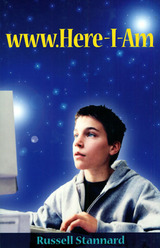
•Does belief in God play a part in that?
•Do you believe in evolution—that you came from animals?
•Do you think there is life on other planets?
•If so, does that make human beings less important?
•Do the world religions contradict each other, or are they simply talking about the same God in somewhat different ways?
•How should belief in an afterlife affect the way you live this life?
READERS
Browse our collection.
PUBLISHERS
See BiblioVault's publisher services.
STUDENT SERVICES
Files for college accessibility offices.
UChicago Accessibility Resources
home | accessibility | search | about | contact us
BiblioVault ® 2001 - 2025
The University of Chicago Press






